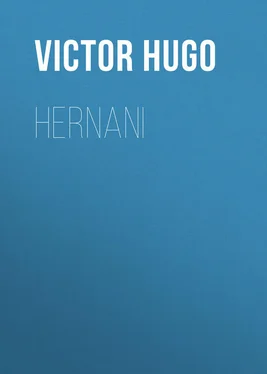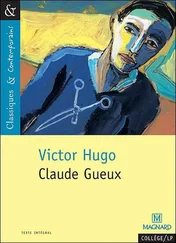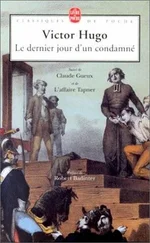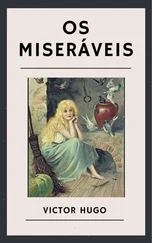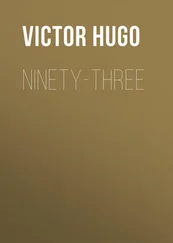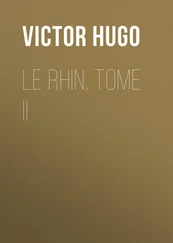Victor Hugo - Hernani
Здесь есть возможность читать онлайн «Victor Hugo - Hernani» — ознакомительный отрывок электронной книги совершенно бесплатно, а после прочтения отрывка купить полную версию. В некоторых случаях можно слушать аудио, скачать через торрент в формате fb2 и присутствует краткое содержание. Жанр: literature_19, foreign_antique, foreign_prose, на французском языке. Описание произведения, (предисловие) а так же отзывы посетителей доступны на портале библиотеки ЛибКат.
- Название:Hernani
- Автор:
- Жанр:
- Год:неизвестен
- ISBN:нет данных
- Рейтинг книги:3 / 5. Голосов: 1
-
Избранное:Добавить в избранное
- Отзывы:
-
Ваша оценка:
- 60
- 1
- 2
- 3
- 4
- 5
Hernani: краткое содержание, описание и аннотация
Предлагаем к чтению аннотацию, описание, краткое содержание или предисловие (зависит от того, что написал сам автор книги «Hernani»). Если вы не нашли необходимую информацию о книге — напишите в комментариях, мы постараемся отыскать её.
Hernani — читать онлайн ознакомительный отрывок
Ниже представлен текст книги, разбитый по страницам. Система сохранения места последней прочитанной страницы, позволяет с удобством читать онлайн бесплатно книгу «Hernani», без необходимости каждый раз заново искать на чём Вы остановились. Поставьте закладку, и сможете в любой момент перейти на страницу, на которой закончили чтение.
Интервал:
Закладка:
«Lucréce Borgia» (1833) illustrates the same point. It is a piling of horror upon horror for the sake, apparently, of bringing into sufficient relief a few passages of great moral beauty. This is as undignified as it is useless. Virtue needs no such setting. M. Vinet says that in this drama Hugo pandered to the false taste of the age, which demanded horrors and violence and sensuous appeals, instead of leading it, as he could, to follow better principles of taste.
«Marie Tudor» (1833) is, like «Cromwell», unhistorical. It is not one of Hugo's greatest plays, nor is «Angelo» (1835), another drama, in prose, founded on history; but «Ruy Blas» (1838) is generally acknowledged to be, after «Hernani», the best of his dramas. It was followed, in 1843, by «Les Burgraves», the last of his plays written for the stage. My judgment may be too unenthusiastic, and I acknowledge that only time can sift the true from the false, the excellent from the second-rate; but I would not exchange the little volume of Musset's unpretending «Comédies et Proverbes» for all the «Hernanis» and «Ruy Blas» in the world, and that for the simple reason that Musset is more sincere.
We have seen that at a very early age Victor Hugo wrote two stories, «Bug Jargal» and «Han d'Islande». In 1831, while in the full heat of his dramatic activity, he yet found time, by shutting himself up and going out but once for six months, to write «Notre Dame de Paris», which is one of his masterpieces of prose, an historical novel built on a scale of gigantic proportions, and presupposing exhaustive archaeological research. It is a vast picture, full of glaring lights and awful shadows, of Paris in the Middle Ages, with the cathedral of Notre Dame as background, and indeed as one of the characters.
A man who had produced so many strong plays and this remarkable novel, not to mention his lyric poetry, could not longer be refused admission into the national galaxy of great men, and in 1841 Hugo was elected a member of the Academy. Two years later he was created a peer of France. In spite of these anchors to conservatism, as one would suppose them, a title of rank and a seat among the immortals, Hugo became more and more radical in politics, drifting gradually towards the conception of an ideal republic, and bending his course thitherward. When Louis Bonaparte, not content with his election to the presidency in 1848, overthrew the government, and proclaimed himself Napoleon III, Emperor of the French, by the infamous coup d'état of December 1851, there was no enemy more irreconcilable than Victor Hugo. The brave poet was banished, and did not touch the soil of France again till 1870, after Sedan, when the wicked Empire had ignominiously dissolved. Although included in an amnesty, he had not been willing to return until the Babylonian woe was past. Most of his exile he spent on the island of Jersey, under the English flag. From there he issued a political pamphlet, «Napoléon le Petit», and a succession of volumes of poetry. His second great work of fiction, «Les Misérables», appeared in 1862, followed by «Les Travailleurs de la Mer», in 1866, and by «Quatre-vingt-treize», in 1874. «L'Homme qui Rit», 1866, was an unsuccessful attempt at an historical novel, with the scene in England. Of his novels «Les Misérables» is incomparably the best. «Les Travailleurs de la Mer», while powerful in its unity and intensity, is too full of technical terms and of idiosyncrasies to be either easy or pleasant reading. «Notre Dame de Paris» and «Quatre-vingt-treize» are the most popular, next to «Les Misérables». In «Les Misérables» Hugo employed that short, choppy style which has come to be known as Hugoesque. To many readers it is decidedly wearisome, though by others it is considered the acme of nervous, terse expression.
But it is as a lyric poet, I fancy, far more than as a dramatist, a novelist, or a political pamphleteer, that Victor Hugo will be known,
«When time has swept both friends and foes.»
Unfortunately, foreign students of French literature are less likely to seek acquaintance with his poems than with his plays and novels. The peculiar character of French versification repels us. We, accustomed to a more heavily accented line, cannot quickly sharpen our ears to the delicate modulations we encounter there. But when once the ear is attuned to these fainter harmonies, a wonderful revelation is made to us in the long succession of songs that rose from the lips of Victor Hugo; and I think it is safe to say that lie is at least the greatest French lyric poet.
His poetry is so intimately the product of his life, that to appreciate it we must know something more of that life, especially the emotions and incidents connected with his home and family. His marriage relation was one of perfect harmony, if one may judge of such matters; and he was happy in his home. His wife was evidently the companion of his thought. His children were two sons and a daughter. In this daughter the poet's deepest love was centred, and her graces are the theme of many of his loveliest songs, while her premature death by drowning, with her young husband, in 1843, was the occasion for that one of his lyrics which contains the fullest portion of moral grandeur, «A Villequier». It is the heartbroken cry of a strong man whom the hand of God has at last led back to faith and submission along paths of darkest sorrow. For it must be remarked that Victor Hugo, intoxicated with success and the atmosphere of protest which he himself had done so much to create, had for many years apparently lost sight of his young manhood's conviction of the immanence of a God in the lives of men. After his daughter's death it was upon his granddaughter Jeanne that his affection took root – the same Jeanne whom he afterwards celebrated, throughout his old age, in the poems which are found in the volume entitled «L'Art d'être Grand-père», and who was the idol of the French nation. She was married a few years ago to a son of Alphonse Daudet.
In the volumes of lyrics from 1822 to 1853, including «Odes et Ballades», «Les Orientales», «Les Feuilles d'Automne», «Les Chants du Crépuscule», and «Les Voix intérieures», there is a marked change in the views of the author as to religion and politics, from conservatism to radicalism, from conviction to uncertainty and almost indifference; and there seems to be a loss of energy when we compare the first with the last productions, though there is a gain, of course, in technical skill. But in all that time there was only an evolution, not a deep moral change imposed from without, for the life of his heart was, all those years, serene. But his exile broke this succession of tranquil years and growing thoughts, and from 1852 to 1870, from «Les Châtiments» to «L'Année terrible», there runs through his volumes a deep undertone of solicitude for the welfare of France, and more especially of sad personal yearning to be back upon her soil. «L'Année terrible», the year of the invasion of France, the siege of Paris, and the Commune, brought him back. The very day that Napoléon le Petit followed his conquerors out of French territory, Victor Hugo entered, and proceeding to Paris, threw himself passionately into the national defence. It may seem a strange thing to say, but this year of disaster must have been a grand and almost a joyous one in Hugo's life. It was the vindication of his exile, in so far as that had been voluntary. It gave him a chance, which he embraced, of translating his heroic words into deeds. Any true man who had for years been writing about the glory of his country and the sacred duty of maintaining her honor must have felt a proud and awful joy in the opportunity to talk now with deeds and words.
The rest of his life, from 1872 to 1885, was spent in conspicuous eminence, on a throne of popularity where he sat the autocrat of republican France, without a rival, and with scarce an enemy. It is true that his career as an active politician was a failure, but then it must have been soon apparent to him that he ought never to have entered upon it, and that he could be more useful and incomparably more distinguished in his own work. He died in Paris, on the 22d of May, 1885. His funeral was a demonstration which has seldom been equalled in the world's history for solemn pomp and the proud grief of a nation.
Читать дальшеИнтервал:
Закладка:
Похожие книги на «Hernani»
Представляем Вашему вниманию похожие книги на «Hernani» списком для выбора. Мы отобрали схожую по названию и смыслу литературу в надежде предоставить читателям больше вариантов отыскать новые, интересные, ещё непрочитанные произведения.
Обсуждение, отзывы о книге «Hernani» и просто собственные мнения читателей. Оставьте ваши комментарии, напишите, что Вы думаете о произведении, его смысле или главных героях. Укажите что конкретно понравилось, а что нет, и почему Вы так считаете.
